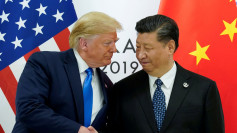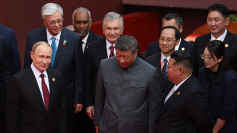China's new tax reduction initiative could boost overall economic growth by 0.8 percentage points this year, Finance Minister Liu Kun reported to the top legislature of the country on Wednesday.
Tax and fee cuts in 2019, forecast to exceed the annual target of 2 trillion yuan ($286 billion), will accelerate gross domestic product growth, boost investment in fixed assets by 0.5 percentage points and lift retail sales by 1.1 percentage points, Liu said at the Standing Committee of the National People's Congress' bi-monthly session.
Between January to October, tax and fee cuts totaled 1.97 trillion yuan, more than 2 trillion yuan in the full year, representing about 2 percent of total gross domestic product, and far higher than any other country, Liu said.
The Ministry of Finance said the value-added tax in the manufacturing and wholesale industries fell by 459.88 billion yuan in the April-October period, down 25.7 percent from the pre-April 1 point when the VAT reform began.
About 186 billion yuan in taxes had been reduced by the end of October for small and micthe ro-enterprises. By end of October, the average income tax payment per person dropped by 1,786 yuan compared to a year earlier.
Li Xuhong, a senior researcher with the Beijing National Accounting Institute, said that given the tax cuts, the sustainability of fiscal policies should be taken into consideration. The cuts will put "pressure" on the fiscal budget and push the government to raise debt, he said.
In order to maintain stable fiscal spending - the key force behind investment in infrastructure - the regular administrative expenditure of the government may fall this year by more than 10 percent, given that the top leadership has vowed to "tighten the belt" in some areas, Liu said.
Because of the lower tax revenue, this year local government budgets may see a deficit, while the central government may achieve its budgeted revenue. If the quantities are low, any shortages will be complemented by that expenditure that is not urgent, Liu added.
Policymakers expect to maximize the effect of this year's tax cuts, said Song Yu, chief economist at Gao Hua Securities. This year, the fiscal deficit target of 3 percent is likely to be difficult to achieve and further cuts are not realistic, but this should have been widely expected, Song said.
Meanwhile, the Ministry of Finance issued a new 1 trillion yuan special bond allocation in advance on November 27, representing 47 percent of the total quota of 2,15 trillion yuan in 2019.






